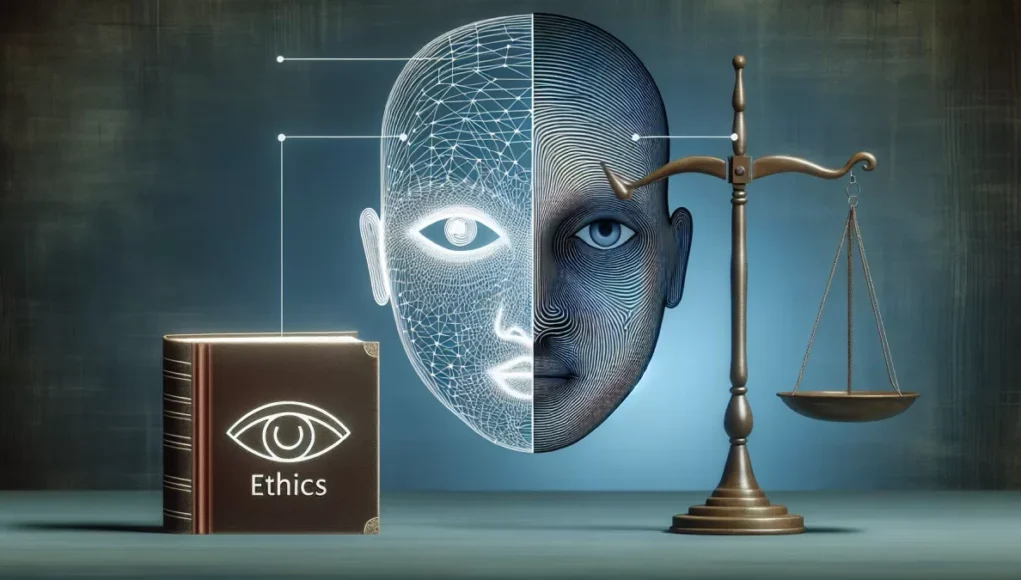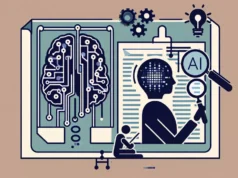In an era where technology continues to evolve and grow exponentially, the ethical questions that arise in its wake continue to challenge and perplex even the most gifted of thinkers. One such transformative technology that is currently under intense scrutiny is facial recognition technology. With its remarkable ability to recognize and verify individuals by comparing new facial images with stored templates, it carries implications that reach far beyond what most of us can imagine.
Facial recognition technology is quickly becoming ubiquitously woven into the fabric of our daily lives, from unlocking our smartphones to surveillance in public spaces, and even in the identification of criminals. However, although these uses demonstrate the technology’s potential myriad benefits, they also expose serious ethical considerations that society must address.
The primary controversy around facial recognition technology stems from concerns about privacy and personal autonomy. Broadly speaking, privacy is seen as a basic human right, integral to maintaining the dignity of individuals. However, the constant and unwelcome intrusion that facial recognition technology may bring has the potential to infrac seriously upon this right. Given that faces cannot be changed or hidden in the same way that a credit card or social security number can, if a person’s biometric data were to be misused or stolen, the implications could be disastrous.
Moreover, there’s potential for individual autonomy to be compromised as well. As Paul Nemitz, principal adviser on justice policy for the European Commission, stated, “Automated recognition of human faces is scientifically challenging, as faces are our primary means of expressing individual personality. Controlling and recognizing this is not just about data or privacy, it’s about human dignity and autonomy.” How society chooses to navigate these deep dilemmas will inevitably shape the evolution of facial recognition technology.
Bias is another significant ethical issue that the application of facial recognition technology presents. Researchers have found that many facial recognition algorithms demonstrate substantial inaccuracies and biases, particularly when it comes to accurately recognizing faces of women, the elderly and people of color. Studies conducted by Joy Buolamwini of the MIT Media Lab found that facial recognition software from leading tech firms, including Microsoft, IBM, and Amazon, misidentified darker-skinned females almost a third of the time, while nearly always getting it right for lighter-skinned men.
Furthermore, ethical questions also reside around the area of consent. Most people are not consciously aware of the full extent to which facial recognition technology is used. Should developers, manufacturers, and end-users be obliged to obtain explicit consent from individuals before collecting, storing, or using their facial data? This would, of course, pose a considerable accessibility challenge given the thousands or even millions of people that some systems process.
The act of surveillance itself, often simplified as ‘watching over,’ inherently carries authoritarian undertones that may threaten democratic societies built on trust and freedom. The city of San Francisco in the United States, perhaps in an effort to safeguard these values, banned city use of facial recognition technology in May 2019. Simultaneously, however, other cities and countries have embraced facial recognition technology in their public security systems.
In the light of such pertinent ethical issues, the need for appropriate regulation becomes evident. The Holy Grail in this case would be legislation that can confidently stride the delicate tightrope of balancing the potential benefits of facial recognition technology with protection against misuse and bias.
Kate Crawford, a principal researcher at Microsoft, argues: “We need to ask, what are the defaults we want to set, and what are the bounds on the use of these systems?”
The truth is we are navigating uncharted waters with the advancement of facial recognition technology. As it becomes more prevalent in everyday life, its associated ethical debate is only set to deepen. Society at large, with the input of lawmakers, ethicists, researchers, and citizens alike will have to collectively decide the course for the future of facial recognition technology.
SOURCES:
1. Paul Nemitz quoted in McNeal, G. (2015, May 18). EU official: Facial recognition tech raises ‘very serious question’ about fundamental rights. Forbes. Retrieved from www.forbes.com
2. Buolamwini J, & Gebru T. (2018, May 22). Gender Shades: Intersectional Accuracy Disparities in Commercial Gender Classification. Proceedings of Machine Learning Research.
3. O’Sullivan, J. (2019, May 14). San Francisco bans city use of facial-recognition tech tools. The Seattle Times.
4. Crawford, K., & Paglen, T. (2019, October). Excavating AI: The politics of images in machine learning training sets. Retrieved from www.excavating.ai






